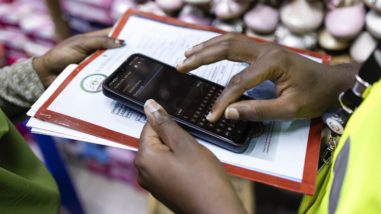Courage comes in many forms. We see it most clearly in the organizations we support to ensure that women around the world have access to comprehensive reproductive health care, including abortion. These organizations are made up of people who do their work under extraordinarily trying conditions. Overseas, they must stretch scarce resources and find creative ways to reach women who themselves are disempowered. In the United States, they face relentless attempts to throw up legal and regulatory barriers to their work. And all too often, they also confront threats to their personal safety and security. Unlike most of us, they need courage just to keep showing up for work every day.
Grantee organizations in Africa, Asia, and Latin America also demonstrate courage in their commitment to shining a light on government policies and practices. They risk intimidation, illegitimate restrictions on their actions, and even harsh reprisals from those who fear or resent their work on behalf of their fellow citizens. After an era of liberalization, we now see governments around the world imposing more and more limits on civil society. While often cloaked in the language of “national security” or fraud prevention, government actions are closing the space for civil society, and mission-driven organizations may be unable to maintain their funding, find offices to rent, or hold public meetings. When your own government challenges your organization’s right to exist, it takes real courage to stick with it.
Finally—and to be clear, this is courage of a far less dramatic kind—some of the organizations we support in Washington are willing to speak truth to power, even at the risk of becoming unpopular within a policy community that prizes access. Criticizing a sitting administration, particularly one that is “friendly” toward the issues you care about, can affect your standing in subtle but important ways. It takes a kind of courage to be the skunk at the garden party.
So what can we do to support courageous organizations and the people within them? The obvious answer is that we can put them at the top of our priority list for grants. And we do. Money can’t protect organizations from the many threats they face, or keep backbones stiff in the face of attacks. But it can help take one challenge off the table for them, particularly when our support comes with the reassurance that it is offered not in spite of the difficulties they face but because of them.



